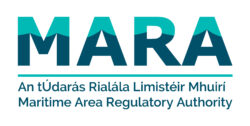
Rochtain ar Fhaisnéis
Welcome to our Access to Information page which provides further information in respect of Freedom of Information (FOI), Access to Information on the Environment (AIE) and Data Protection.
Frequently Asked Questions
1. What is the difference between FOI and Data Protection?
FOI enables public access to information held by public bodies, including non-personal data. Data Protection laws, governed by the General Data Protection Regulation (GDPR) and the Data Protection Acts, focus solely on personal data, granting individuals rights over their own information. FOI applies to public bodies, while Data Protection applies to both public and private entities handling personal data.
2. What is the difference between AIE and FOI?
AIE specifically relates to access to environmental information and it is designed to implement the Aarhus Convention which allows the public to access information that can help them participate in environmental decision-making. AIE is governed by the European Communities (Access to Information on the Environment) Regulations 2007-2018, which implement the EU Directive 2003/4/EC.FOI provides a general right of access to all types of records held by public bodies, including administrative, financial, and operational information. FOI is governed by the Freedom of Information Act 2014, which is specific to Ireland and applies only to public bodies as defined in the Act.
3. How can I access my personal data held by a public body?
You can request access to your personal data under Data Protection laws by submitting a Subject Access Request (SAR) to the relevant public body. Alternatively, you can use the FOI Act to request records containing your personal information. Both avenues are available, but Data Protection laws specifically address personal data.
4. What is the Access to Information on the Environment (AIE) Regulation?
The AIE Regulations provide the public with rights of access to environmental information held by public authorities. This includes information on the state of the environment, factors affecting it, and policies or measures related to it. The definition of public authorities under AIE is broader than under FOI.
5. Are there fees associated with FOI or AIE requests?
Generally, there is no initial fee for making FOI or AIE requests. However, fees may apply for the search, retrieval, and copying of records, especially if the request is extensive. Further details can be found on the specific tabs above.
6. What types of information can be accessed under FOI?
Under FOI, you can access a wide range of records held by public bodies, including administrative documents, reports, and emails. However, certain exemptions exist, such as records related to national security, commercially sensitive information, or personal information about others.
7. How do I make a request?
Each tab above brings you to the portal you need with full information on how to make a request under AIE, FOI or SAR. This generally involves emailing your request to the relevant area, depending on the type of request. Details of timelines, fees, reviews and appeals are all available.
8. What should I do if my request is refused or I am dissatisfied with the response?
If your FOI or AIE request is refused, or you are dissatisfied with the response, you can seek an internal review. If still unsatisfied, you may appeal to the Information Commissioner for FOI requests or the Commissioner for Environmental Information for AIE requests. For data protection issues, you can contact the Data Protection Commission.
9. How long does it take to receive a response to my information request?
Public bodies are required to respond to FOI requests within 20 working days. For AIE requests, the timeframe is one month. Data Protection Subject Access Requests should also be addressed within one month. These periods can be extended in certain circumstances, with notification to the requester.
10. Can I request information about deceased individuals?
Data Protection rights generally apply to living individuals. Accessing information about deceased persons may be possible under FOI, depending on the nature of the records and any applicable exemptions. Specific considerations and restrictions may apply, and it’s advisable to consult the relevant public body’s policies or seek legal advice.



